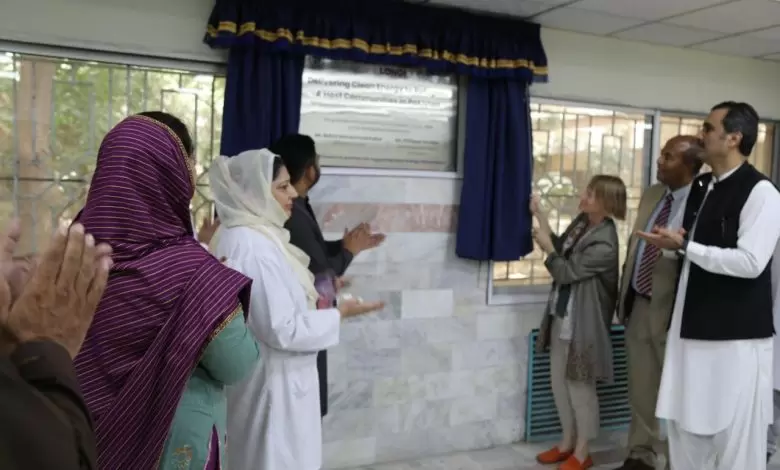
Bolan Medical Complex (BMC), one of Balochistan’s largest government hospitals, has been fully transitioned to solar power, marking a major step towards sustainable energy in the province’s healthcare sector.
The solarization project was implemented with the support of the United Nations High Commissioner for Refugees (UNHCR) and its private sector partner, LONGi.
According to details, the newly installed solar system will generate 1.16 million kilowatt-hours of electricity annually. This will not only meet the hospital's entire energy needs but also save around Rs70 million every year and reduce carbon emissions by 468 tonnes. BMC provides healthcare to both local patients and Afghan refugees.
The inauguration ceremony of the solar project was held at the hospital and attended by Special Secretary of Health Shahak Baloch, UNHCR Representative in Pakistan Philippa Candler, UNHCR Quetta Head Tesfaye Bekele, Afghan Commissioner Arbab Talib, and BMC's Dr. Liaquat Baloch.
Philippa Candler highlighted that the project reflects UNHCR’s commitment to the welfare of both host communities and refugees. “Clean energy not only improves public facilities but also brings real change in people’s lives,” she said.
Also Read: IED Blast Kills 3 Suspected Militants in D.I. Khan's Kulachi
This solar initiative is part of a broader UNHCR strategy to support Afghan refugees and host communities through healthcare and energy interventions.
In 2024, under KOICA funding, UNHCR provided BMC with advanced medical equipment including ICU beds, ECG machines, and urology tools.
Earlier in 2022, UNHCR had equipped the hospital with cutting-edge diagnostic tools for gastrointestinal diseases, including HD and 4K endoscopy systems, AI-based imaging devices, and electrosurgical units, significantly enhancing its medical services.
UNHCR stated that its goal is to link humanitarian aid with sustainable development in Pakistan, ensuring long-term benefits for both refugees and local communities.